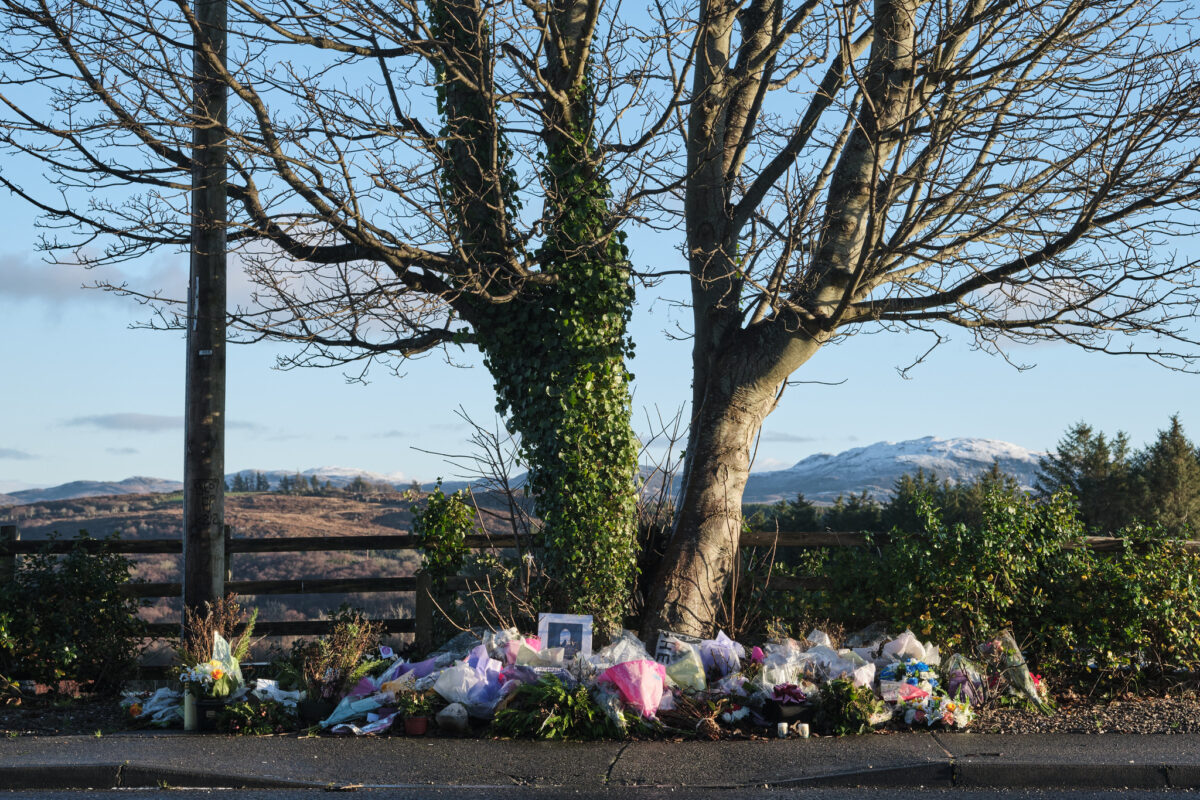Ireland’s media regulator has partially upheld a complaint against TG4’s documentary on the Creeslough tragedy.
Iniúchadh TG4 – An Craoslach, which aired last February, was found to breach the Broadcasting Act 2009 by causing distress to bereaved families, which the Coimisiún na Meán said could have been avoided.
A complaint was made by Killian Flanagan on behalf of his sister, Áine, whose daughter, Shauna (5) and her partner, Robert Garwe (50) lost their lives in the explosion on 7th October 2022.
Mr Flanagan complained that the documentary breached the broadcasting law, which requires broadcasters to ensure they do not broadcast anything which may reasonably be regarded as causing harm or offence.
He said that one particular part of the broadcast caused serious distress to his sister.
An interview with a man who had been at the scene of the explosion said that he heard a little girl talking but he was unable to get to her. The documentary did not name the girl or report whether she survived. This led her mother Áine to believe the girl may have been her daughter and that her daughter may have been alive after the explosion, with first responders not able to reach her. Flanagan claimed his sister was contacted by friends and relatives after the broadcast who also thought the girl referenced in the broadcast may have been her daughter.
Mr Flanagan claimed another section of the programme caused further anguish and distress to his sister when an interviewee described the building as collapsing “like a pancake”. He argued that this information was not known to the family before the broadcast, and that TG4 had issued a statement in advance of the programme to state that it would not report anything about the victims other than what has already been reported publicly. The Commission acknowledged that this upset the bereaved family but said there is “editorial justification” for including this witness’s account.
However, the Commission noted that broadcaster engagement with bereaved families prior to broadcast could have provided an opportunity to identify and address this issue. It was noted that the distress caused by the broadcast could have been avoided if the broadcaster had given special consideration to the bereaved families and consulted with them prior to broadcast.
Mr Flanagan’s complaint was upheld in part, as the Commission decided the broadcast breached section 48(1)(b) of the Broadcasting Act 2009 and Principle 3 of the BAI Code of Programme Standards (Protection from Harm) but did not breach Principles 6 (Protection of the Public Interest) and 7 (Respect for Privacy) of the same Code.
In response to the complaint, TG4 explained the decision to broadcast the programme was not taken lightly and the programme was aimed at giving a voice to those who were involved in the immediate aftermath of the explosion at Creeslough, particularly those involved in the rescue of people trapped in the debris.
TG4 also reported that the day after the broadcast, it sought and received clarification that the little girl referred to in the broadcast was someone else and that she had been rescued. This was communicated to the family.
The broadcaster’s response to the commission added that audiences were informed prior to broadcast that the programme contained content of a sensitive nature and a graphic was provided at the end of the broadcast to guide viewers who may have been affected by it to a support helpline.
The Commission said it acknowledged the legitimacy of making and broadcasting a programme about the impact of this event on the community in Creeslough.








